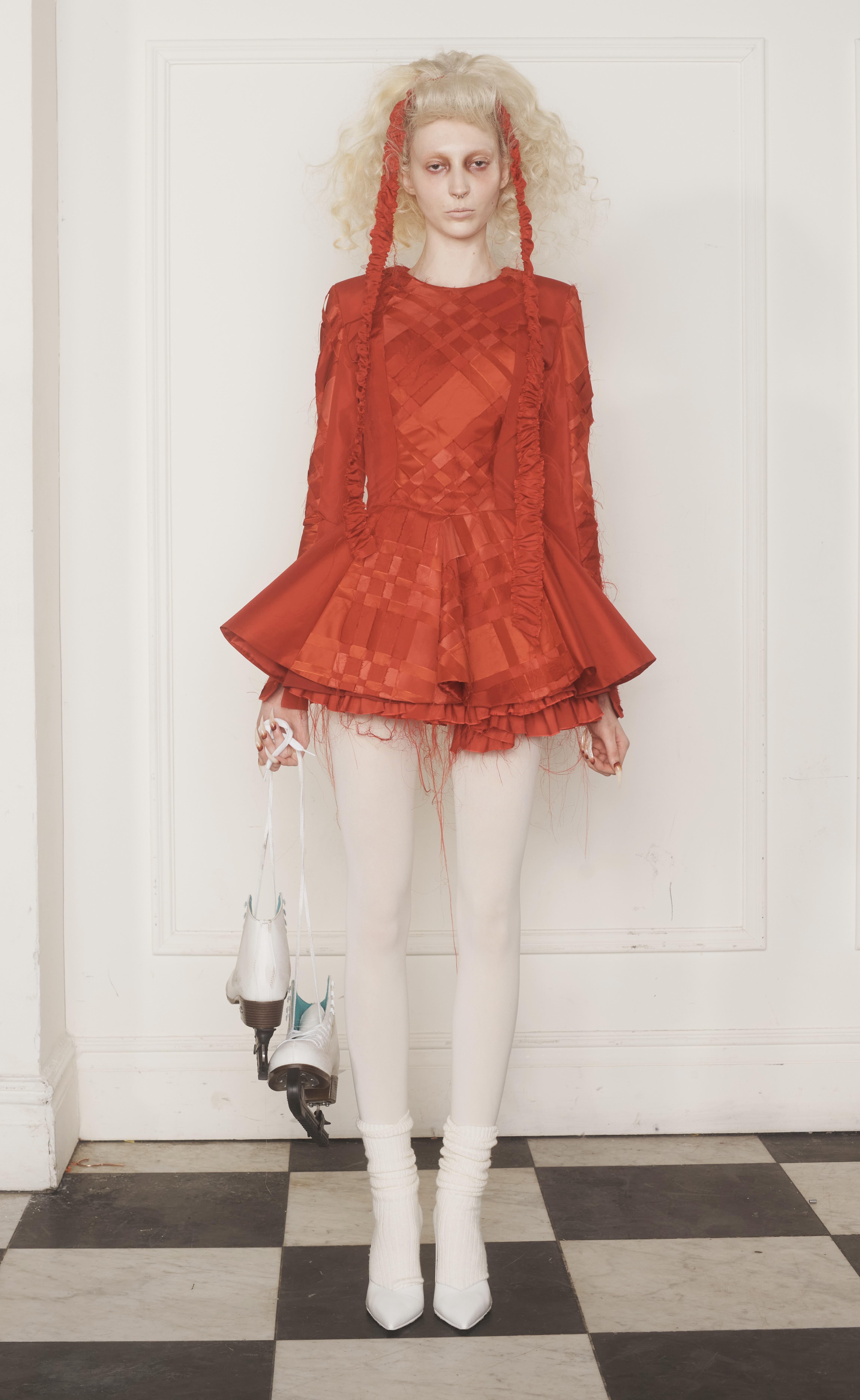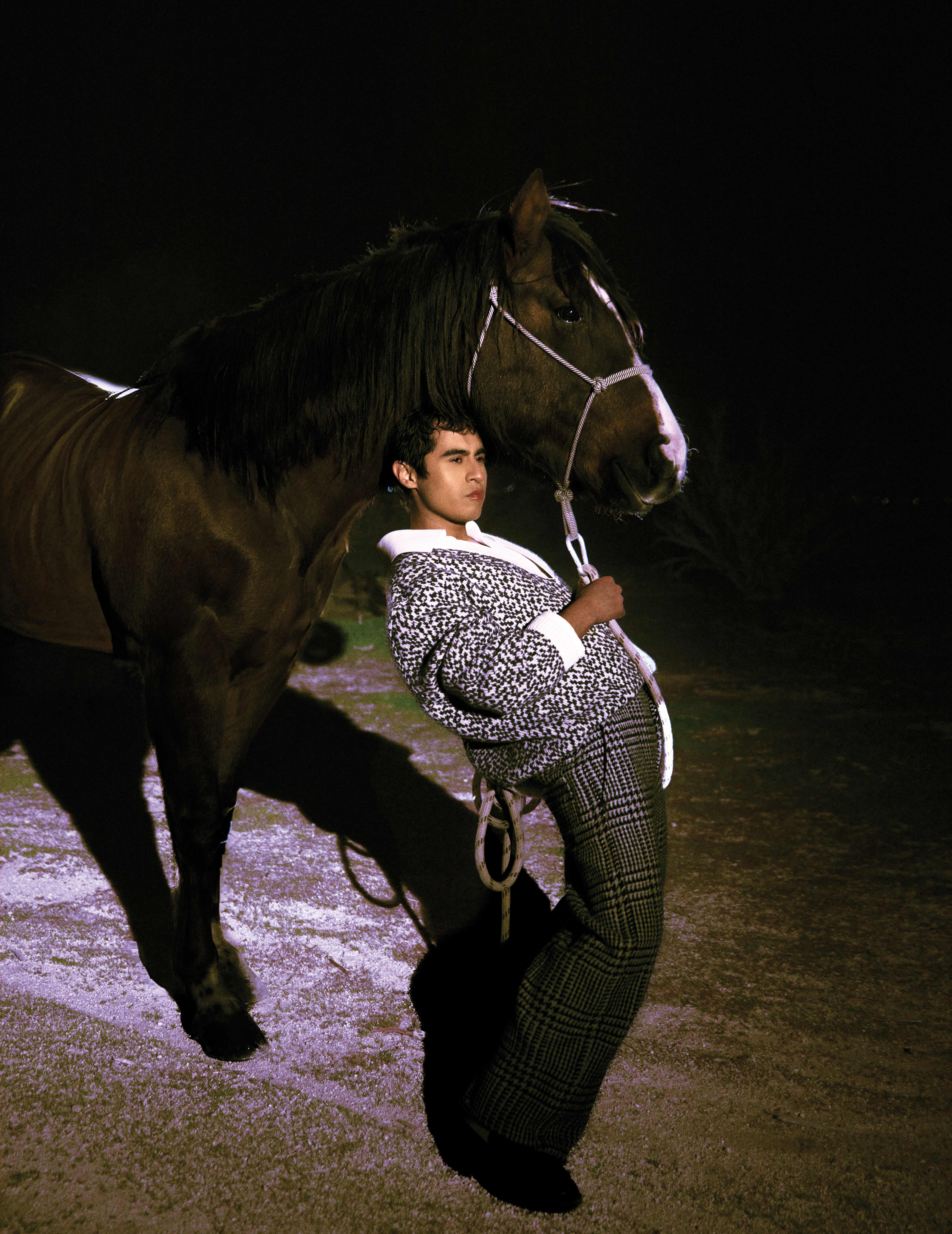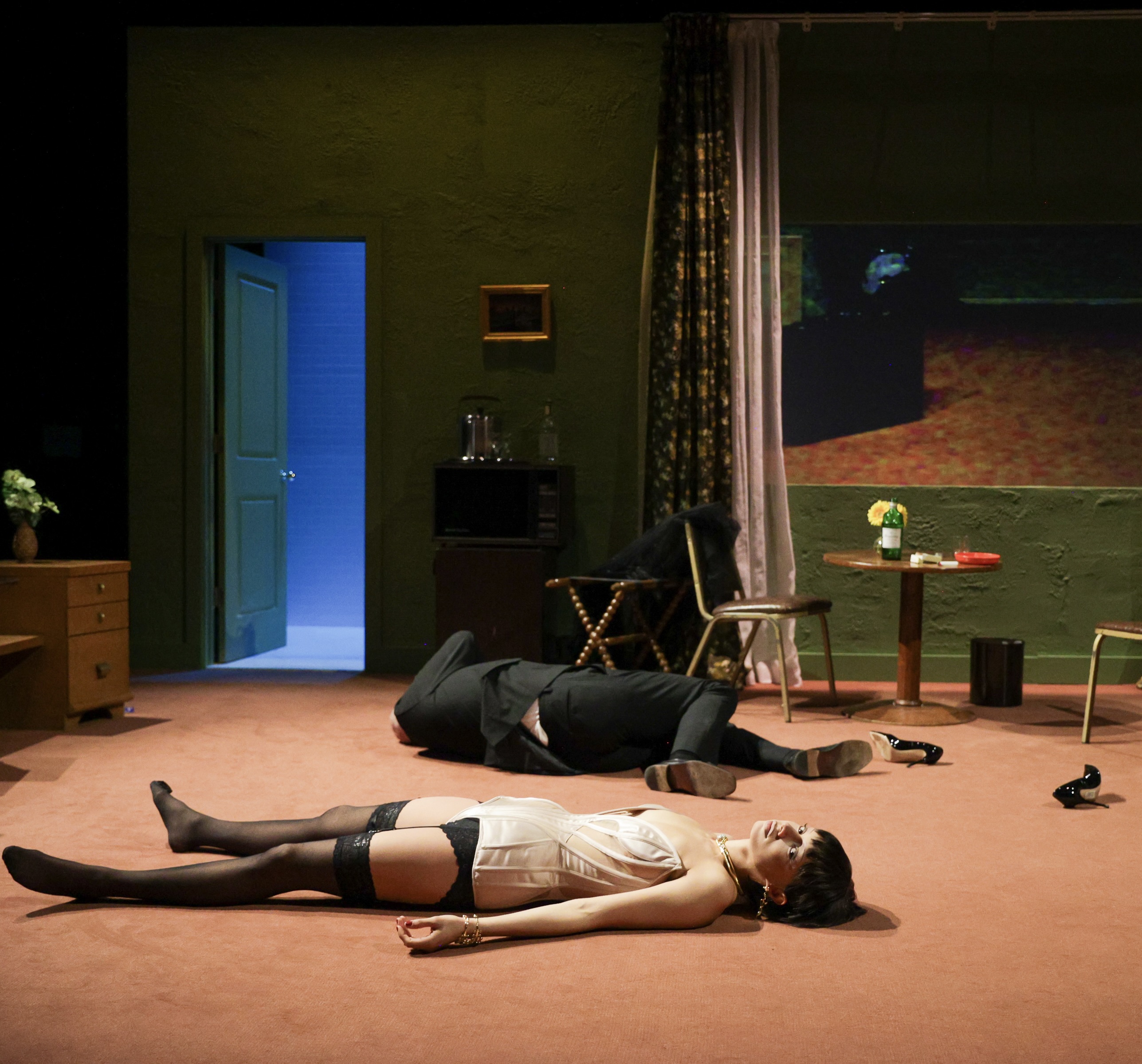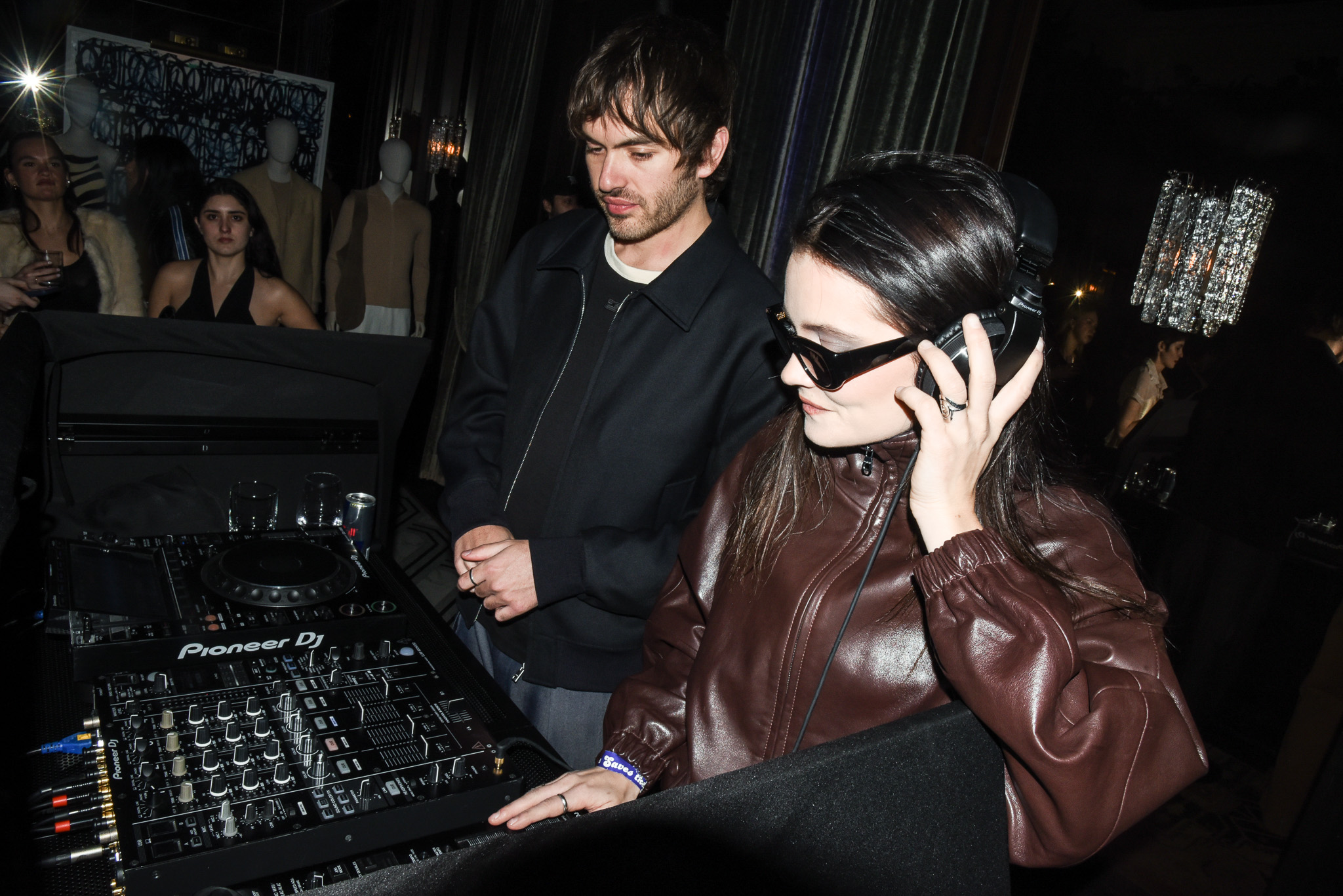

Adrian Younge releases an unapologetic critique detailing the systemic and malevolent psychology that afflicts people of color through a multimedia project. The multi-instrumentalist, composer, producer, and co-founder of Jazz Is Dead takes on his most ambitious project to date releasing three companion pieces an album, _The American Negro,_ a podcast _Invisible Blackness,_ and a short film title _T.A.N._
_The American Negro_ is out on Jazz Is Dead on February 26, 2021. Read _Flaunt_’s conversation with Younge below as we talk about the album, inspiration for the record, his podcast, and more!
* * *
**What was the driving force behind wanting to make this album?**
I want to make my version of a _What’s Going On_ album. When quarantine hit, as soon as it started, I said, “Well I ain’t got nothing else to do, I should spend this time making this album because I know it is going to be a crazy time investment.” I got at least a third of the way in and then everything happened with George Floyd. It was such a serendipitous moment. But it was one of those moments where I was looking to create an album that would be timeless, just like_What’s Going On_ or any book on racism in America, because things change all in various elements but don’t really vitiate they’re still around so I knew that it would also be something relevant.
**Why do you think it is important for the cover art of this album to be as graphic as it is? Do you think it speaks more to the Black experience today (rather than some time long ago) especially the back cover?**
The album cover represents so many different things. Lynching is a form of violence where the mob mentality is incendiary and it is under the pretext of administrating justice without a trial, vigilante justice, and you are executing someone and/or committing a form of corporal punishment. So if you break all of these things down it illuminates so many different things about the album cover. First of all, the album cover represents lynching postcards. Back in the day, the late 1800s and early 1900s, whites would lynch Black people for damn near nothing and it was a celebration and if you were there you would get a postcard. It was something I love to call bigotry theatre. You get a postcard, you take a picture with the deceased, it was festive and you would have to pay money for this kind of stuff so that picture represents that, and it shows a Black man dying from asphyxiation.
You can see how that is analogous with George Floyd being choked out or Eric Garner being choked out. It's us dying without any judicial reprisals but it being okay because of a system that our institution put together years ago. Many people say “There is no such thing as racism. There is no such thing as slavery.” But they don’t realize the enigmatic principles behind it. They don’t realize the machinations that were put together years ago, fostered by a government that was created on the basis of slavery. We had a slavocracy. It was a government founded upon the fact that we must subjugate these people in order for us to proliferate: us being white imperialists, to spread our white imperialism on the concept of manifest destiny. So going back to this picture, it represents this concept of the mob mentality. The galvanizing of a group, fueled by emotion not thought, so that the antipathy and the complacency toward our position as Black people are part of this mob mentality thing where you are not thinking it just happens. Then it happens without judicial reprisal, so you’re not going to get in trouble for this shit. So you are a cop and you could murder a Black person because they don’t have the same kind of value. It also represents the fact that Blacks came to America as property, as chattel, and when slavery was abolished, we became the problem. Then the civil war, the bloodiest war in America, we were blamed for it. So then after that, retribution groups like the KKK and the Knights of the White Camellia, were formed to solve America’s “problem”. So that cover represents so much.


**You speak of Black consciousness on the album and the podcast. Do you think that the notion of Black consciousness in America has changed since the social reckoning that followed George Floyd’s death this past summer?**
The concept of Black consciousness has been going on for centuries, and the concept of Black consciousness has morphed over the years. So when we look at the word consciousness, we have conscience, understanding right from wrong, and we have conscious. So when we deal with the Black consciousness we are talking about seeing ourselves, kind of like having an out-of-body experience and looking at ourselves. Understanding who we are, understanding who we are now, and understanding that we are the only culture that was brought to America without our own language because our language was severed; our culture was severed. We had to find ourselves here, and in doing so, we see ourselves through the lens of double oppression. We see ourselves in the mirror for who we are but we also see ourselves through the lens of white America; these over-determined stereotypes of who we are or who we are supposed to be. So when we are understanding this concept of Black consciousness, we went from the law; the institution saying we are property, we are not valued as humans, to us being recognized as people but not citizens from the Dread Scott case to us than being allowed to be people under the concept of separate but equal and then under the concept of we are not equal. So there has been this evolution of Black consciousness. We knew who we were back then, but we have to continually prove ourselves to show who we are, and we went from being property to being not fully recognized as equals but we are getting closer and closer. The Black consciousness is understanding our collective power in who we are and who we can be.
**Why did you want to start a podcast? Can you speak on the name “Invisible Blackness”? What do you hope to achieve with your podcast?**
Everything I am doing right now from _The American Negro_ album to the _Invisible Blackness_ podcast to my film _T.A.N._ are all companion pieces that better educate people regarding the concept of racism. Racism is not always intentional, it's a concept. At least when you are educated making your decisions, whether it is a racist decision or not, more likely than not you can know what you are doing and you can know how to defend yourself. So the purpose of the podcast is to give an unapologetic optic into the ideology of the evolution of racism in America because America’s racism that we pioneered here was different. Other countries did not have a chattel system or a slavery system where it was perpetual slavery. It was not something where your offspring and their offspring were, by law, property of those that enslaved them. There is so much that I am trying to say with these three companion pieces. The podcast is where I get very deep and provide examples and extract laws and codes from my days as a law professor and illuminate what this stuff really means to the average person. We didn’t learn this stuff in high school, we didn’t learn this stuff in elementary school. This is just part of us re-educating ourselves and forming our Black consciousness, but moreover, human consciousness, because it is not about Black people being better than white people or white people being better than black people. It is just the fact that we are people, we are all the same. Nobody is better here, but don’t subjugate us.
**What role do you think art plays in the upward battle of systematic racism in America?**
Art is a form of communication, art is a form of expression, and real art always provides some tension to the guard, but the issue is, well, who is the guard? In this scenario, the guard what we are fighting, is the protector of this institution, the person or the entity that is trying to secure white imperialism in America. What I mean by that is, you have to realize our nation is built upon capitalistic principles. Now I am a capitalist myself but our capitalism here in America was built on us being the product and us building the infrastructure. So when I could convey this message through art, I am using a different route to educate people. A lot of people don’t want to hear your pontifications, they don’t just want to hear you talk about shit, that bores them. But if they can hear them through music, they can be wide open for it. If they can hear it through music, they’re willing to hear your message over and over for the rest of their life. So art is one of the strongest weapons we have in disseminating information.
**What were your influences on the album?**
I wanted to make an album that was the type of album where somebody like James Baldwin hooked up with somebody like Marvin Gaye to make a modern album produced by somebody like David Axelrod or Curtis Mayfield. Something that has so much soul, but has so much psychedelic color to it, but is then professorial at the same time. It’s a piece of history, not just a piece of art. It’s something that I want to be timeless, and something that I don’t want to be timeless, because I want these discussions to end.
**What would you say to young Black artists today?**
I would tell young Black artists that they have to use their voice, because, as an artist, you become an arbiter of truth for so many people. If you are trying to be a virtuous person, and I underline a virtuous person, you want to help people. You want to help them discover ways to live their lives to the fullest. One way to do that is by educating people, especially Black and people of color, educating them about how special they actually are, educating them about living life in a way where you are not manifesting a dead soul. What I mean is that: yeah, there’s shit going on, and we had slavery, and all of that. At the same time, you have to be happy, because life is so beautiful, life is great, and you need to understand how to compartmentalize and move on, but recognize what’s happening and what has happened. So I would tell artists to learn how to put together a message that will make people’s lives better.
 
Adrian Younge releases an unapologetic critique detailing the systemic and malevolent psychology that afflicts people of color through a multimedia project. The multi-instrumentalist, composer, producer, and co-founder of Jazz Is Dead takes on his most ambitious project to date releasing three companion pieces an album, _The American Negro,_ a podcast _Invisible Blackness,_ and a short film title _T.A.N._
_The American Negro_ is out on Jazz Is Dead on February 26, 2021. Read _Flaunt_’s conversation with Younge below as we talk about the album, inspiration for the record, his podcast, and more!
* * *
**What was the driving force behind wanting to make this album?**
I want to make my version of a _What’s Going On_ album. When quarantine hit, as soon as it started, I said, “Well I ain’t got nothing else to do, I should spend this time making this album because I know it is going to be a crazy time investment.” I got at least a third of the way in and then everything happened with George Floyd. It was such a serendipitous moment. But it was one of those moments where I was looking to create an album that would be timeless, just like_What’s Going On_ or any book on racism in America, because things change all in various elements but don’t really vitiate they’re still around so I knew that it would also be something relevant.
**Why do you think it is important for the cover art of this album to be as graphic as it is? Do you think it speaks more to the Black experience today (rather than some time long ago) especially the back cover?**
The album cover represents so many different things. Lynching is a form of violence where the mob mentality is incendiary and it is under the pretext of administrating justice without a trial, vigilante justice, and you are executing someone and/or committing a form of corporal punishment. So if you break all of these things down it illuminates so many different things about the album cover. First of all, the album cover represents lynching postcards. Back in the day, the late 1800s and early 1900s, whites would lynch Black people for damn near nothing and it was a celebration and if you were there you would get a postcard. It was something I love to call bigotry theatre. You get a postcard, you take a picture with the deceased, it was festive and you would have to pay money for this kind of stuff so that picture represents that, and it shows a Black man dying from asphyxiation.
You can see how that is analogous with George Floyd being choked out or Eric Garner being choked out. It's us dying without any judicial reprisals but it being okay because of a system that our institution put together years ago. Many people say “There is no such thing as racism. There is no such thing as slavery.” But they don’t realize the enigmatic principles behind it. They don’t realize the machinations that were put together years ago, fostered by a government that was created on the basis of slavery. We had a slavocracy. It was a government founded upon the fact that we must subjugate these people in order for us to proliferate: us being white imperialists, to spread our white imperialism on the concept of manifest destiny. So going back to this picture, it represents this concept of the mob mentality. The galvanizing of a group, fueled by emotion not thought, so that the antipathy and the complacency toward our position as Black people are part of this mob mentality thing where you are not thinking it just happens. Then it happens without judicial reprisal, so you’re not going to get in trouble for this shit. So you are a cop and you could murder a Black person because they don’t have the same kind of value. It also represents the fact that Blacks came to America as property, as chattel, and when slavery was abolished, we became the problem. Then the civil war, the bloodiest war in America, we were blamed for it. So then after that, retribution groups like the KKK and the Knights of the White Camellia, were formed to solve America’s “problem”. So that cover represents so much.

Adrian Younge releases an unapologetic critique detailing the systemic and malevolent psychology that afflicts people of color through a multimedia project. The multi-instrumentalist, composer, producer, and co-founder of Jazz Is Dead takes on his most ambitious project to date releasing three companion pieces an album, _The American Negro,_ a podcast _Invisible Blackness,_ and a short film title _T.A.N._
_The American Negro_ is out on Jazz Is Dead on February 26, 2021. Read _Flaunt_’s conversation with Younge below as we talk about the album, inspiration for the record, his podcast, and more!
* * *
**What was the driving force behind wanting to make this album?**
I want to make my version of a _What’s Going On_ album. When quarantine hit, as soon as it started, I said, “Well I ain’t got nothing else to do, I should spend this time making this album because I know it is going to be a crazy time investment.” I got at least a third of the way in and then everything happened with George Floyd. It was such a serendipitous moment. But it was one of those moments where I was looking to create an album that would be timeless, just like_What’s Going On_ or any book on racism in America, because things change all in various elements but don’t really vitiate they’re still around so I knew that it would also be something relevant.
**Why do you think it is important for the cover art of this album to be as graphic as it is? Do you think it speaks more to the Black experience today (rather than some time long ago) especially the back cover?**
The album cover represents so many different things. Lynching is a form of violence where the mob mentality is incendiary and it is under the pretext of administrating justice without a trial, vigilante justice, and you are executing someone and/or committing a form of corporal punishment. So if you break all of these things down it illuminates so many different things about the album cover. First of all, the album cover represents lynching postcards. Back in the day, the late 1800s and early 1900s, whites would lynch Black people for damn near nothing and it was a celebration and if you were there you would get a postcard. It was something I love to call bigotry theatre. You get a postcard, you take a picture with the deceased, it was festive and you would have to pay money for this kind of stuff so that picture represents that, and it shows a Black man dying from asphyxiation.
You can see how that is analogous with George Floyd being choked out or Eric Garner being choked out. It's us dying without any judicial reprisals but it being okay because of a system that our institution put together years ago. Many people say “There is no such thing as racism. There is no such thing as slavery.” But they don’t realize the enigmatic principles behind it. They don’t realize the machinations that were put together years ago, fostered by a government that was created on the basis of slavery. We had a slavocracy. It was a government founded upon the fact that we must subjugate these people in order for us to proliferate: us being white imperialists, to spread our white imperialism on the concept of manifest destiny. So going back to this picture, it represents this concept of the mob mentality. The galvanizing of a group, fueled by emotion not thought, so that the antipathy and the complacency toward our position as Black people are part of this mob mentality thing where you are not thinking it just happens. Then it happens without judicial reprisal, so you’re not going to get in trouble for this shit. So you are a cop and you could murder a Black person because they don’t have the same kind of value. It also represents the fact that Blacks came to America as property, as chattel, and when slavery was abolished, we became the problem. Then the civil war, the bloodiest war in America, we were blamed for it. So then after that, retribution groups like the KKK and the Knights of the White Camellia, were formed to solve America’s “problem”. So that cover represents so much.
 
**You speak of Black consciousness on the album and the podcast. Do you think that the notion of Black consciousness in America has changed since the social reckoning that followed George Floyd’s death this past summer?**
The concept of Black consciousness has been going on for centuries, and the concept of Black consciousness has morphed over the years. So when we look at the word consciousness, we have conscience, understanding right from wrong, and we have conscious. So when we deal with the Black consciousness we are talking about seeing ourselves, kind of like having an out-of-body experience and looking at ourselves. Understanding who we are, understanding who we are now, and understanding that we are the only culture that was brought to America without our own language because our language was severed; our culture was severed. We had to find ourselves here, and in doing so, we see ourselves through the lens of double oppression. We see ourselves in the mirror for who we are but we also see ourselves through the lens of white America; these over-determined stereotypes of who we are or who we are supposed to be. So when we are understanding this concept of Black consciousness, we went from the law; the institution saying we are property, we are not valued as humans, to us being recognized as people but not citizens from the Dread Scott case to us than being allowed to be people under the concept of separate but equal and then under the concept of we are not equal. So there has been this evolution of Black consciousness. We knew who we were back then, but we have to continually prove ourselves to show who we are, and we went from being property to being not fully recognized as equals but we are getting closer and closer. The Black consciousness is understanding our collective power in who we are and who we can be.
**Why did you want to start a podcast? Can you speak on the name “Invisible Blackness”? What do you hope to achieve with your podcast?**
Everything I am doing right now from _The American Negro_ album to the _Invisible Blackness_ podcast to my film _T.A.N._ are all companion pieces that better educate people regarding the concept of racism. Racism is not always intentional, it's a concept. At least when you are educated making your decisions, whether it is a racist decision or not, more likely than not you can know what you are doing and you can know how to defend yourself. So the purpose of the podcast is to give an unapologetic optic into the ideology of the evolution of racism in America because America’s racism that we pioneered here was different. Other countries did not have a chattel system or a slavery system where it was perpetual slavery. It was not something where your offspring and their offspring were, by law, property of those that enslaved them. There is so much that I am trying to say with these three companion pieces. The podcast is where I get very deep and provide examples and extract laws and codes from my days as a law professor and illuminate what this stuff really means to the average person. We didn’t learn this stuff in high school, we didn’t learn this stuff in elementary school. This is just part of us re-educating ourselves and forming our Black consciousness, but moreover, human consciousness, because it is not about Black people being better than white people or white people being better than black people. It is just the fact that we are people, we are all the same. Nobody is better here, but don’t subjugate us.
**What role do you think art plays in the upward battle of systematic racism in America?**
Art is a form of communication, art is a form of expression, and real art always provides some tension to the guard, but the issue is, well, who is the guard? In this scenario, the guard what we are fighting, is the protector of this institution, the person or the entity that is trying to secure white imperialism in America. What I mean by that is, you have to realize our nation is built upon capitalistic principles. Now I am a capitalist myself but our capitalism here in America was built on us being the product and us building the infrastructure. So when I could convey this message through art, I am using a different route to educate people. A lot of people don’t want to hear your pontifications, they don’t just want to hear you talk about shit, that bores them. But if they can hear them through music, they can be wide open for it. If they can hear it through music, they’re willing to hear your message over and over for the rest of their life. So art is one of the strongest weapons we have in disseminating information.
**What were your influences on the album?**
I wanted to make an album that was the type of album where somebody like James Baldwin hooked up with somebody like Marvin Gaye to make a modern album produced by somebody like David Axelrod or Curtis Mayfield. Something that has so much soul, but has so much psychedelic color to it, but is then professorial at the same time. It’s a piece of history, not just a piece of art. It’s something that I want to be timeless, and something that I don’t want to be timeless, because I want these discussions to end.
**What would you say to young Black artists today?**
I would tell young Black artists that they have to use their voice, because, as an artist, you become an arbiter of truth for so many people. If you are trying to be a virtuous person, and I underline a virtuous person, you want to help people. You want to help them discover ways to live their lives to the fullest. One way to do that is by educating people, especially Black and people of color, educating them about how special they actually are, educating them about living life in a way where you are not manifesting a dead soul. What I mean is that: yeah, there’s shit going on, and we had slavery, and all of that. At the same time, you have to be happy, because life is so beautiful, life is great, and you need to understand how to compartmentalize and move on, but recognize what’s happening and what has happened. So I would tell artists to learn how to put together a message that will make people’s lives better.

**You speak of Black consciousness on the album and the podcast. Do you think that the notion of Black consciousness in America has changed since the social reckoning that followed George Floyd’s death this past summer?**
The concept of Black consciousness has been going on for centuries, and the concept of Black consciousness has morphed over the years. So when we look at the word consciousness, we have conscience, understanding right from wrong, and we have conscious. So when we deal with the Black consciousness we are talking about seeing ourselves, kind of like having an out-of-body experience and looking at ourselves. Understanding who we are, understanding who we are now, and understanding that we are the only culture that was brought to America without our own language because our language was severed; our culture was severed. We had to find ourselves here, and in doing so, we see ourselves through the lens of double oppression. We see ourselves in the mirror for who we are but we also see ourselves through the lens of white America; these over-determined stereotypes of who we are or who we are supposed to be. So when we are understanding this concept of Black consciousness, we went from the law; the institution saying we are property, we are not valued as humans, to us being recognized as people but not citizens from the Dread Scott case to us than being allowed to be people under the concept of separate but equal and then under the concept of we are not equal. So there has been this evolution of Black consciousness. We knew who we were back then, but we have to continually prove ourselves to show who we are, and we went from being property to being not fully recognized as equals but we are getting closer and closer. The Black consciousness is understanding our collective power in who we are and who we can be.
**Why did you want to start a podcast? Can you speak on the name “Invisible Blackness”? What do you hope to achieve with your podcast?**
Everything I am doing right now from _The American Negro_ album to the _Invisible Blackness_ podcast to my film _T.A.N._ are all companion pieces that better educate people regarding the concept of racism. Racism is not always intentional, it's a concept. At least when you are educated making your decisions, whether it is a racist decision or not, more likely than not you can know what you are doing and you can know how to defend yourself. So the purpose of the podcast is to give an unapologetic optic into the ideology of the evolution of racism in America because America’s racism that we pioneered here was different. Other countries did not have a chattel system or a slavery system where it was perpetual slavery. It was not something where your offspring and their offspring were, by law, property of those that enslaved them. There is so much that I am trying to say with these three companion pieces. The podcast is where I get very deep and provide examples and extract laws and codes from my days as a law professor and illuminate what this stuff really means to the average person. We didn’t learn this stuff in high school, we didn’t learn this stuff in elementary school. This is just part of us re-educating ourselves and forming our Black consciousness, but moreover, human consciousness, because it is not about Black people being better than white people or white people being better than black people. It is just the fact that we are people, we are all the same. Nobody is better here, but don’t subjugate us.
**What role do you think art plays in the upward battle of systematic racism in America?**
Art is a form of communication, art is a form of expression, and real art always provides some tension to the guard, but the issue is, well, who is the guard? In this scenario, the guard what we are fighting, is the protector of this institution, the person or the entity that is trying to secure white imperialism in America. What I mean by that is, you have to realize our nation is built upon capitalistic principles. Now I am a capitalist myself but our capitalism here in America was built on us being the product and us building the infrastructure. So when I could convey this message through art, I am using a different route to educate people. A lot of people don’t want to hear your pontifications, they don’t just want to hear you talk about shit, that bores them. But if they can hear them through music, they can be wide open for it. If they can hear it through music, they’re willing to hear your message over and over for the rest of their life. So art is one of the strongest weapons we have in disseminating information.
**What were your influences on the album?**
I wanted to make an album that was the type of album where somebody like James Baldwin hooked up with somebody like Marvin Gaye to make a modern album produced by somebody like David Axelrod or Curtis Mayfield. Something that has so much soul, but has so much psychedelic color to it, but is then professorial at the same time. It’s a piece of history, not just a piece of art. It’s something that I want to be timeless, and something that I don’t want to be timeless, because I want these discussions to end.
**What would you say to young Black artists today?**
I would tell young Black artists that they have to use their voice, because, as an artist, you become an arbiter of truth for so many people. If you are trying to be a virtuous person, and I underline a virtuous person, you want to help people. You want to help them discover ways to live their lives to the fullest. One way to do that is by educating people, especially Black and people of color, educating them about how special they actually are, educating them about living life in a way where you are not manifesting a dead soul. What I mean is that: yeah, there’s shit going on, and we had slavery, and all of that. At the same time, you have to be happy, because life is so beautiful, life is great, and you need to understand how to compartmentalize and move on, but recognize what’s happening and what has happened. So I would tell artists to learn how to put together a message that will make people’s lives better.



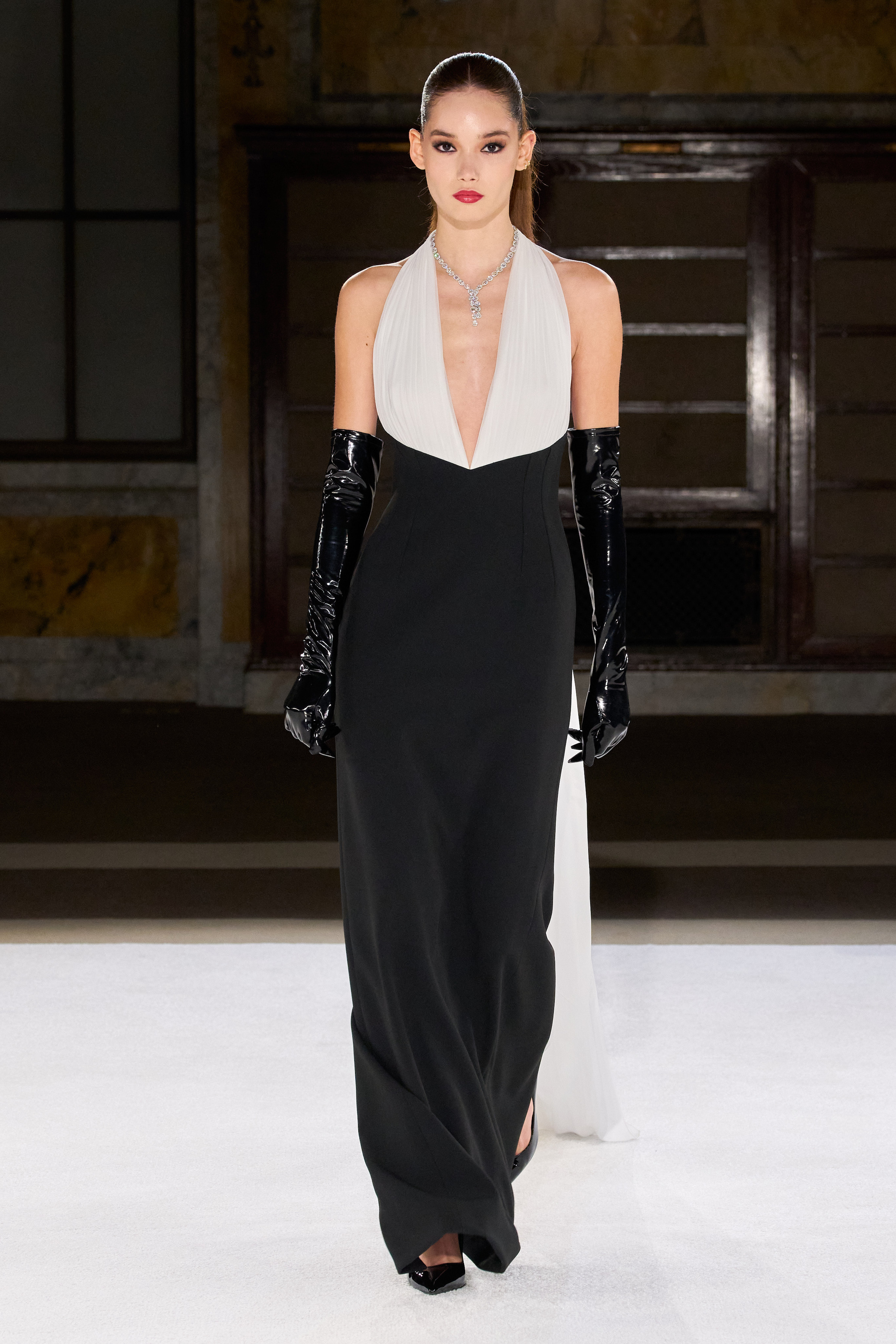

.jpg)
